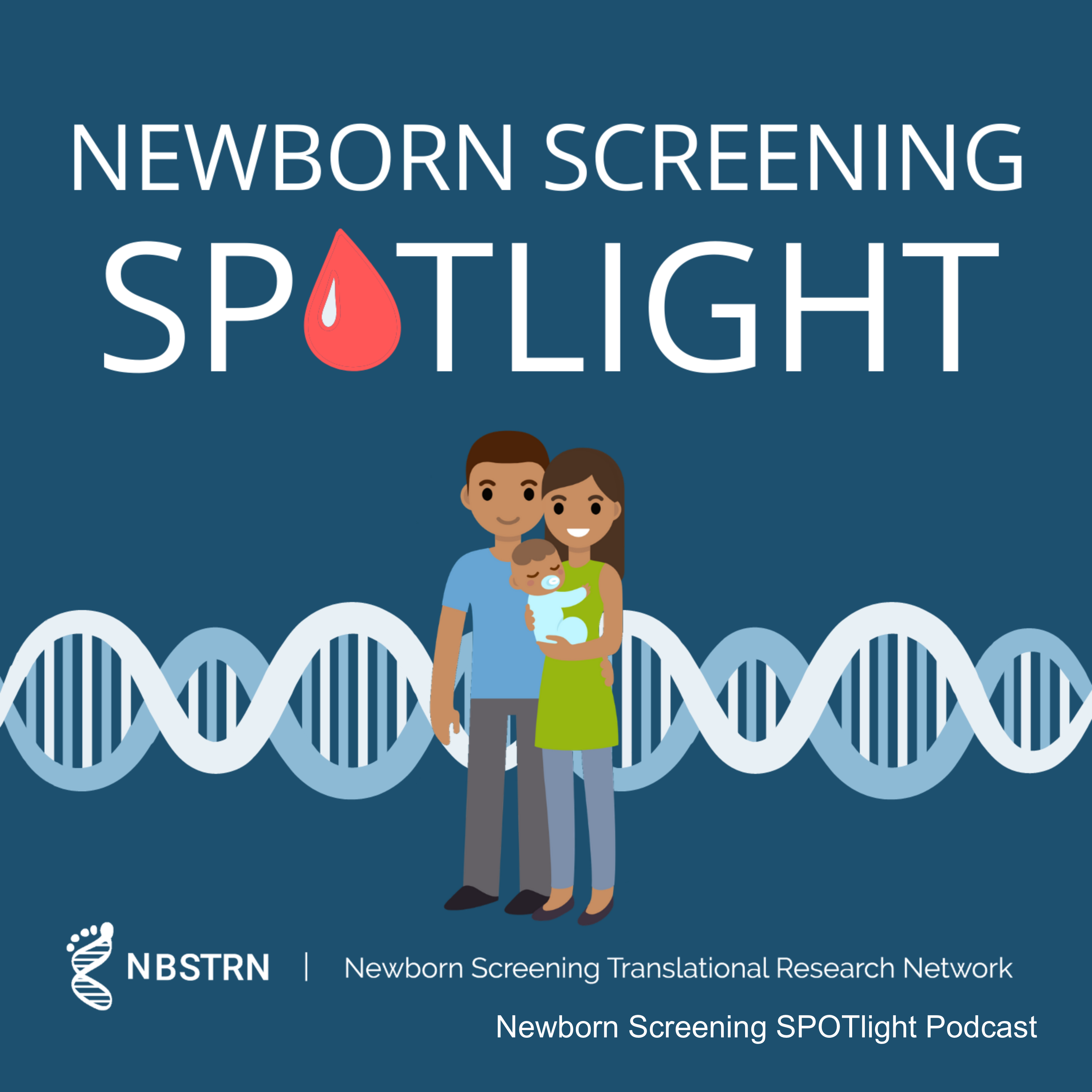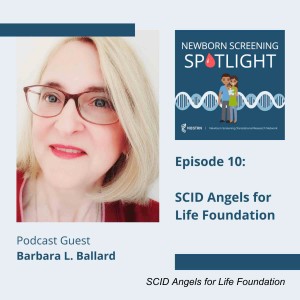
6.1K
Downloads
27
Episodes
This podcast is about the advancement of rare disease research told by health professionals, researchers, parents, and advocates. This podcast is for you to learn how newborn screening research saves the lives of babies every day through discoveries of new technologies and treatments. You will hear stories from experts who treat babies, the families who care for them, and the researchers who make it all happen.
Episodes

Monday Apr 11, 2022
SCID Angels for Life Foundation
Monday Apr 11, 2022
Monday Apr 11, 2022
Listen as Barb Ballard shares her long history of advocacy and innovative efforts in newborn screening. Barb is currently the Director of SCID Angels for Life Foundation. Her involvement with the non-profit sector began after her son, Ray, born in 1994, was diagnosed at 10 ½ months old with X-Linked Severe Combined Immune Deficiency, commonly known as the Bubble Boy Disease. Barb served on the Board of Trustees for The Immune Deficiency Foundation for 18 years, where she advocated for the interests of parents, families and individuals living with immune deficiency at numerous state, and federal committees, while developing the SCID Initiative Program. While her son was hospitalized as a baby at Duke University, Barb developed the first list-serv for families of children diagnosed with SCID. Be inspired by Barb’s story of perseverance, determination, and dedication in supporting families facing genetic disease.
Interview Questions with Barb Ballard:
1. What is the mission of your organization (perhaps, here you can discuss your grant and scholarship program, community engagement activities, and resources on clinical trials)?
2. Barb had a child with SCID who also touched many lives and his story directly and indirectly led to changes in the way newborns are screened, diagnosed, and treated for immune deficiencies. Can you tell our listeners about his life and your hopes for his legacy?
3. Before Ray was diagnosed with SCID were you aware of newborn screening? What do you think prospective parents should know about newborn screening – not only for SCID but other conditions?
4. Because SCID is a spectrum of different genetic variations (or changes, we used to call them mutations) and needs of patients with SCID vary drastically, how do you engage clinical research partners to understand the needs and concerns of the patient population?
5. What are some of the current efforts of SCID Angels for Life organization in disseminating information on new clinical research?
6. What role does your Facebook or other social channels help to support families whose newborn screens positive for SCID? Are there things that national groups like NIH, CDC and HRSA could be doing to support new families?
7. Your organization also currently manages three scholarship programs to support families: Family Scholarship, Travel Scholarship, and Education Scholarship. How could our listeners learn more about these programs? (perhaps you talk about the application process, deadline, qualifications)
8. You have hosted several Town Halls and other informational webinars on new information or clinical trials where the patients and their families are looking to have their questions answered directly. What are some of the common frequently asked questions?
9. What does NBS research mean to you?
To learn more about SCID Angels for Life, visit http://www.scidangelsforlife.com
If you have a story on how rare disease research has impacted your life and family, please contact NBSTRN to share your story on our podcast. Visit www.nbstrn.org

No comments yet. Be the first to say something!